Not following the beaten path of entertainment social networks, YooLife chose a more challenging journey: Reviving national culture and history with AI, IoT and VR360 technology, serving the community of learning, experiencing and preserving Vietnamese identity to stay true to the spirit of a technology platform Made in Vietnam for Vietnamese people.
Dan Tri reporter talked with Mr. Nguyen Manh Tung, founder of this social network, to learn about the humanistic technology philosophy that this startup team is pursuing.
Realizing the aspiration of "Make in Vietnam"
Can you share about the background and breakthrough ideas that led to the birth of the YooLife digital platform?
- Around the beginning of 2020, we started asking ourselves a big question: "If not Vietnamese people, then who will use technology to tell the story of Vietnam - with 4,000 years of history and such a rich culture?"

Mr. Nguyen Manh Tung, founder of virtual reality social network YooLife - a product in the ecosystem of YooTek Holdings.
We believe that technology is not only a tool to promote economic development, but can also become a bridge connecting the past with the future - helping today's young generation not to be cut off from the flow of national culture.
Also at that time, the "Make in Vietnam" policy began to be strongly promoted by the Government, with a very clear message: not only making products, but also mastering design thinking, core technology and the entire value chain.
This orientation has given us the confidence and motivation to transform ourselves - from the role of system integrator to the desire to create, from deploying foreign technology to building purely Vietnamese technology platforms.
And YooLife was formed from that very aspiration: to use technology to preserve and revive cultural values that are gradually fading away - from history, heritage, architecture, music, community memories, towards building a smart society. This is a truly "purely Vietnamese" digital platform, fully reflecting the spirit of "Make in Vietnam for Vietnamese people" that we always aim for.
So what is YooLife's initial core technology orientation, sir?
- Right from the beginning of building YooLife, what we were most concerned about was not which technology was the most advanced, but how much meaning that technology could create. For us, the greatest meaning is how to preserve, restore and spread the cultural and historical flow of the nation that has lasted for 4,000 years.
We don't choose AI, IoT or VR360 just because they are "hot" technologies. What makes us stick with them is that they open up a completely new approach, allowing Vietnamese people - especially the younger generation - to "touch" the national culture with a truly vivid experience.
Instead of just reading a few lines about a heroic battle, or glancing at a still image of an ancient relic, users can directly "step into" that space. They can stand in the middle of Thai Hoa Palace, listen to the sound of drums, feel the architecture, colors, and atmosphere as if they were living in a court session recreated with 3D/VR, AR technology. That is an experience that books or 2D images cannot bring.
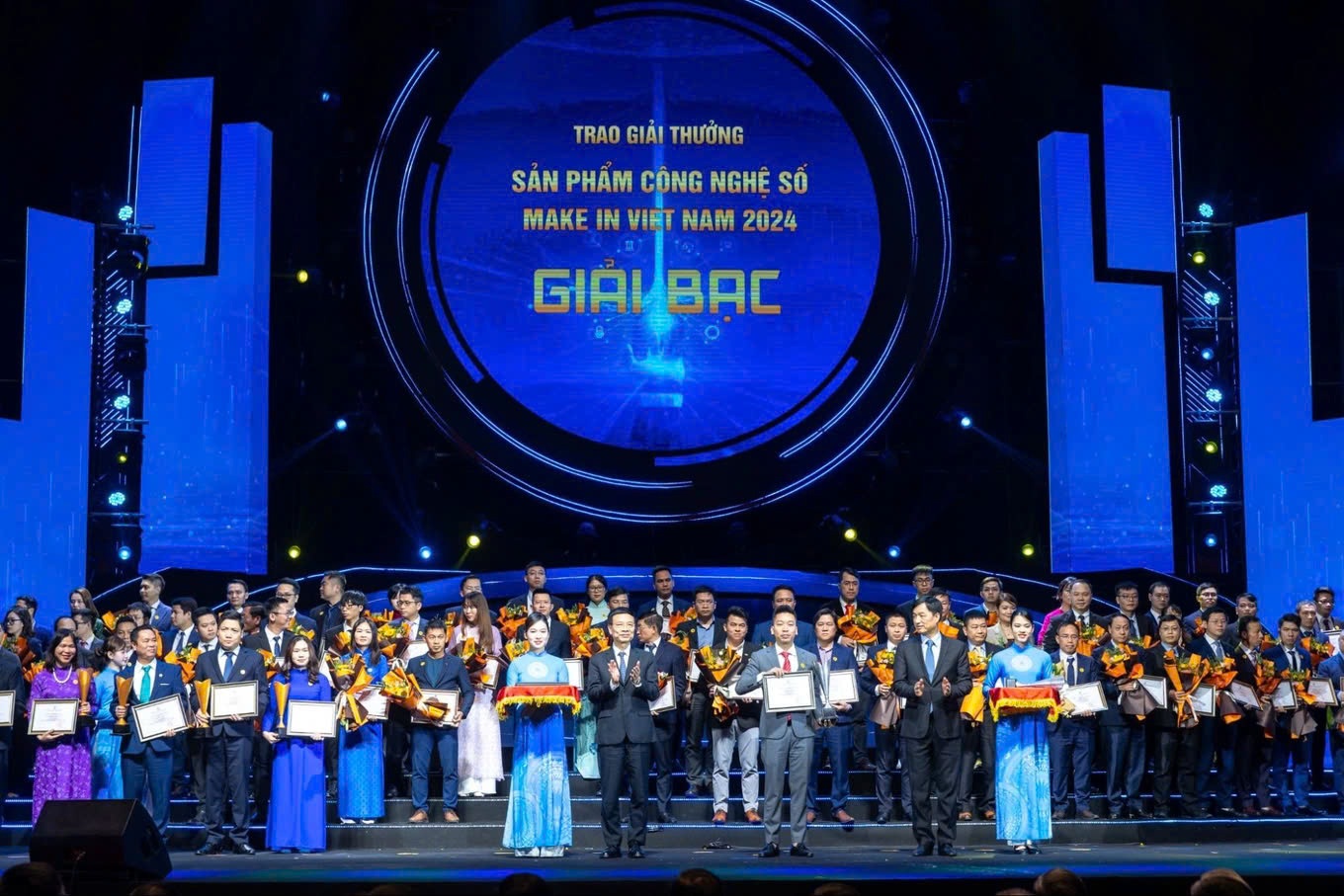
YooLife won the Make in Vietnam silver award in the 2024 potential digital technology product category.
For us, YooLife is not just a digital platform. We want it to become a living cultural space, where seemingly forgotten memories are told in the language of technology, where young people can learn, feel, and connect.
We call it "telling Vietnamese stories with Vietnamese technology" - which is the spirit that Make in Vietnam is pursuing. Because once technology comes from the need to preserve national identity, it will have a very different vitality: more durable, deeper and more lasting.
From a digital platform, what motivated YooLife to develop into the social network it is today?
- When we started developing YooLife, we intended that this would be an open digital platform AIoT Platform - to digitize apartments, buildings, urban areas, and gradually build smart residential communities.
However, the deeper we dug, the more we saw a bigger and more important gap: the absence of Vietnamese platforms capable of preserving and recounting cultural and historical values in the digital age.
Nowadays, most social networks focus on fast entertainment content, especially short videos. It is not difficult to realize that most of them are foreign platforms, and this leads to the strong spread of foreign content, aesthetics and cultural thinking. In that context, if Vietnamese cultural identity is not protected and renewed by Vietnamese technology, it is easy to be forgotten or overshadowed.
We understand that building a social network that competes directly with "giants" like Facebook, TikTok or YouTube is almost impossible.
In fact, Vietnamese startups have made efforts, but the results have been quite modest. Therefore, we chose a different direction: not competing on entertainment, but focusing on long-term values that large platforms have not exploited - that is, culture, history and memories of the Vietnamese community in a completely new form of content expression.
YooLife is developed based on three technological pillars: AI, IoT and VR360. With this platform, we can not only recreate a living space or a tourist destination, but also digitize a traditional craft village, a traditional festival, or even a lifestyle that has existed for many generations.
In addition, users can also experience, interact, and gain a deeper understanding of values that are gradually fading away - something that books or still images can hardly convey.

Only when culture is told through technology in a way that is intimate, vivid, and profound can those values reach young people, be preserved naturally, without imposition, and continue to live on in today's digital life.
We believe that only when culture is told through technology in a close, vivid and profound way can those values reach young people, be preserved naturally, without imposition, and continue to live on in today's digital life.
How did the journey of shaping YooLife product from idea to reality take place? Is there any difference compared to the original vision, sir?
- There are certainly differences and evolutions throughout the development process. Technology products cannot be framed from the beginning, but must be brought to the market, tested in practice, listened to feedback, and then continuously adjusted to better suit user needs and social contexts.
The first version of YooLife focuses on the digitalization problem for apartments, buildings and urban areas, aiming to build smart residential communities.
This is also the trend that many large investors are pursuing, aiming to develop sustainable projects according to ESG standards. At that stage, the core technology that we prioritize is IoT, to connect devices, manage data and optimize operations in the living environment.
However, as the product was deployed in practice, we quickly realized a much larger need: users not only wanted to connect in physical living spaces, but also wanted to connect more deeply with society, with communities, with culture and spiritual values.
They spend a lot of time on social media, but mostly consume quick, in-depth entertainment content. That made us question the true role of digital platforms - and start to reshape YooLife in a more open way.
From there, we developed a new mindset: building a unified digital platform - digitizing from home to street, taking AI, IoT and 3D/VR technology as pillars, to create a pioneering virtual reality social network developed by Vietnamese people. But the most important thing is not technology, but how technology is used to serve people and preserve identity.
Currently, YooLife not only recreates beautiful 3D spaces, but also seeks out places with historical and cultural significance - from national monuments, traditional craft villages, museums to spiritual works - to breathe life into technology, making the experience come alive and profound.
Notably, YooLife does not go it alone. We actively coordinate with localities, conservation centers, schools, museums and businesses, to digitize heritage across the "S" map.
In many places, we not only implement projects but also guide local partners on how to create content, how to tell cultural stories using technology, and transfer the necessary tools - so that they can proactively digitize their own heritage and then share it on YooLife.
We want YooLife to become an open cultural space where everyone can contribute to preserving Vietnamese identity - using the tools of the digital age. Technology, in this case, does not stand outside of culture; it becomes a part of culture, a way for heritage to continue to live, spread, and be understood and accepted by the younger generation in their own way.
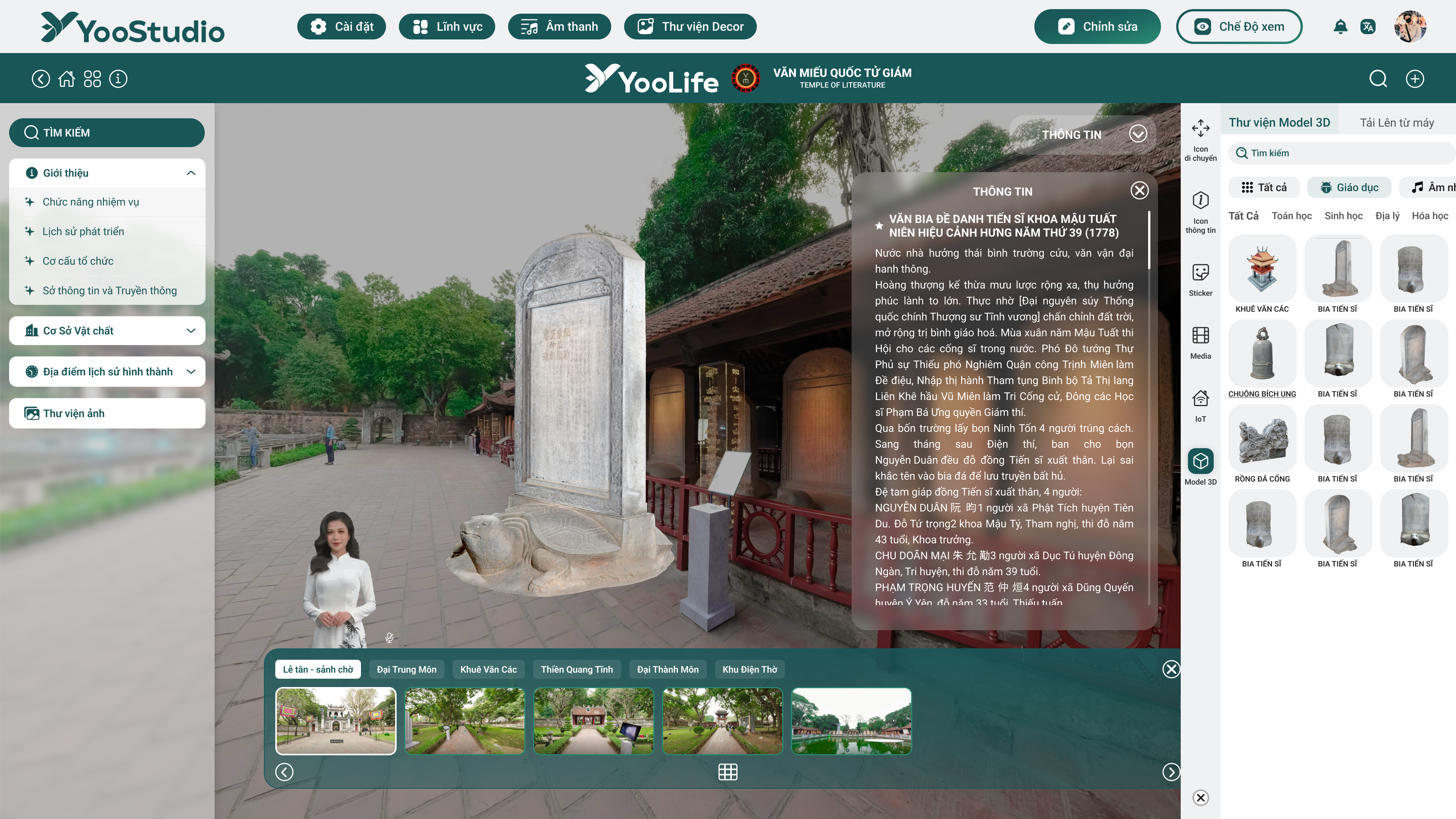
YooStudio virtual content creation tool serves the digital content creation community following the 6.0 marketing trend.
AI, IoT and VR360 applications revive Vietnamese history and identity
How do you evaluate the acceptance and use of new technologies such as AI by Vietnamese people today?
- AI is truly a major, groundbreaking invention of recent times. Its rapid popularity comes from several factors:
Typically, ChatGPT is very simple, anyone can use it, it simulates the human brain with a huge knowledge base and logical reasoning ability, giving useful answers.
In particular, AI is increasingly capable of processing data, analyzing images, videos, text (computer vision, natural language processing) and self-learning better.
However, it is necessary to distinguish between general AI (such as Chat GPT) and generative AI (AI Agents). YooLife focuses on generative applied AI, which means applying AI models (open source and self-developed) to solve specific problems in its platform to enhance product value.
Vietnamese people, especially young people, are very responsive to new technologies such as artificial intelligence. They accept and find ways to apply them to work and life.
With products like YooLife, when users see the practical benefits and unique experiences that AI, 3D/VR bring, they will be ready to accept. The important thing is that the product must truly solve a problem or bring new value.
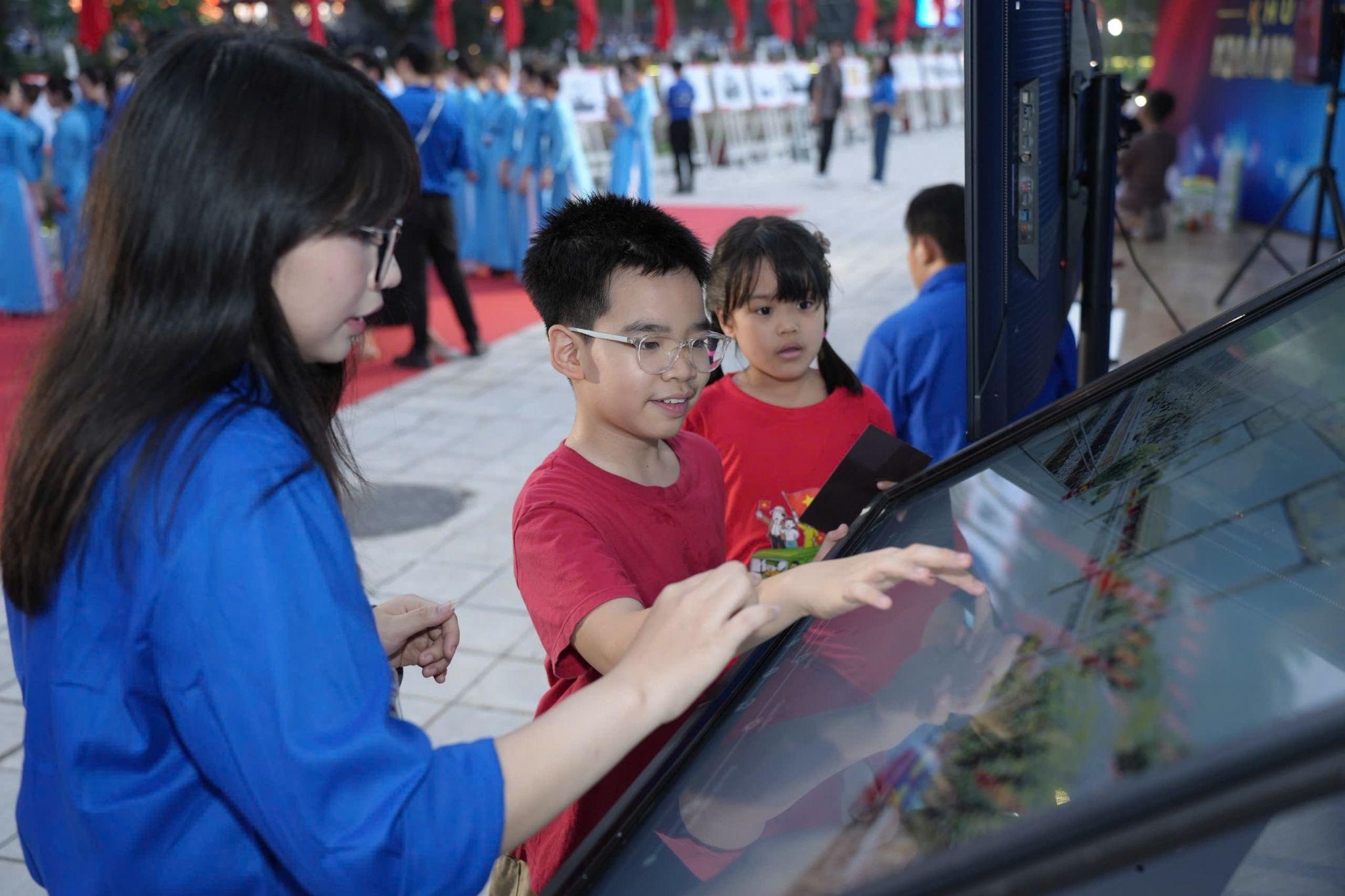
Kids enjoy experiencing YooLife.
In the spirit of Resolution 57 of the Politburo on technological breakthrough development, in your opinion, what are the policy difficulties that startups like YooLife are facing and need to be resolved?
- The biggest difficulty for startups, in our opinion, is still resources - especially capital and human resources. Unlike traditional businesses, the startup model is almost the opposite: having to invest a lot in research, development and team building before being able to create a product, and then start calculating revenue.
Currently, although there are some investment funds for startups, the biggest problem lies in the disbursement mechanism. Capital may be available, but it is almost "hard to spend" for R&D or innovation activities, because there is still a fear of risk and accountability if the project fails - while everyone understands that startups are a field where risk and failure are part of the journey to something new.
We also see a lack of strong incentive mechanisms, such as sandboxes or policies that prioritize the use of "Make in Vietnam" products in the domestic market. This should be the initial "incubator" to help Vietnamese technology products have the opportunity to be tested, practically applied and mature right at home.
What we expect is that the State can soon build a transparent and flexible venture capital fund mechanism, with a risk-taking mindset in the early stages of startups, especially for innovative businesses and core technology products.
There needs to be clear criteria, public programs, and specific contacts for startups to easily access. In addition, it is necessary to strongly deploy sandbox models, allowing businesses to test new products and services in a legally protected space, instead of being constrained by regulations that are reserved for traditional models.
There is also a need for a more systematic "incubator" policy: selecting, evaluating, and screening potential startups like organizing competitions for excellent students - then having a systematic investment and support process to gradually create Vietnamese "technology unicorns" that can compete internationally. It is important to pay attention to the small and medium-sized startup community, because this is where breakthrough ideas often arise - not just focusing on large, established corporations.
I think Resolution 57 is a very positive signal - it shows that the Party and State leaders have truly recognized the problem and set out very clear directions for solving it.
What we expect most right now is for specific policies to be issued soon, implemented quickly and put into practice, so that the technology startup community can confidently pursue the long-term journey - the journey of making Vietnamese products with Vietnamese technology, for the problems of Vietnamese people.
In your opinion, what are the strategic technology fields that Vietnam has potential and should focus on developing in the coming time?
- I think there are some core technology areas that Vietnam has the potential to develop and create real breakthroughs:
First, in AI, Vietnam has a clear advantage in human resources in mathematics and natural sciences, partly due to its long tradition of learning, and partly due to early investment in STEM education in recent years. In addition, the fact that large technology corporations have set up R&D centers in Vietnam also opens up opportunities for domestic engineers to access knowledge, technology, and global ecosystems.
Second is IoT and 5G - considered the lifeblood of digital infrastructure, with an extremely wide range of applications: from smart cities, industry 4.0, to high-tech agriculture. Vietnam is transforming very strongly in these areas, so the development space for IoT and 5G is still very large, especially if supported by open policies and flexible testing frameworks.
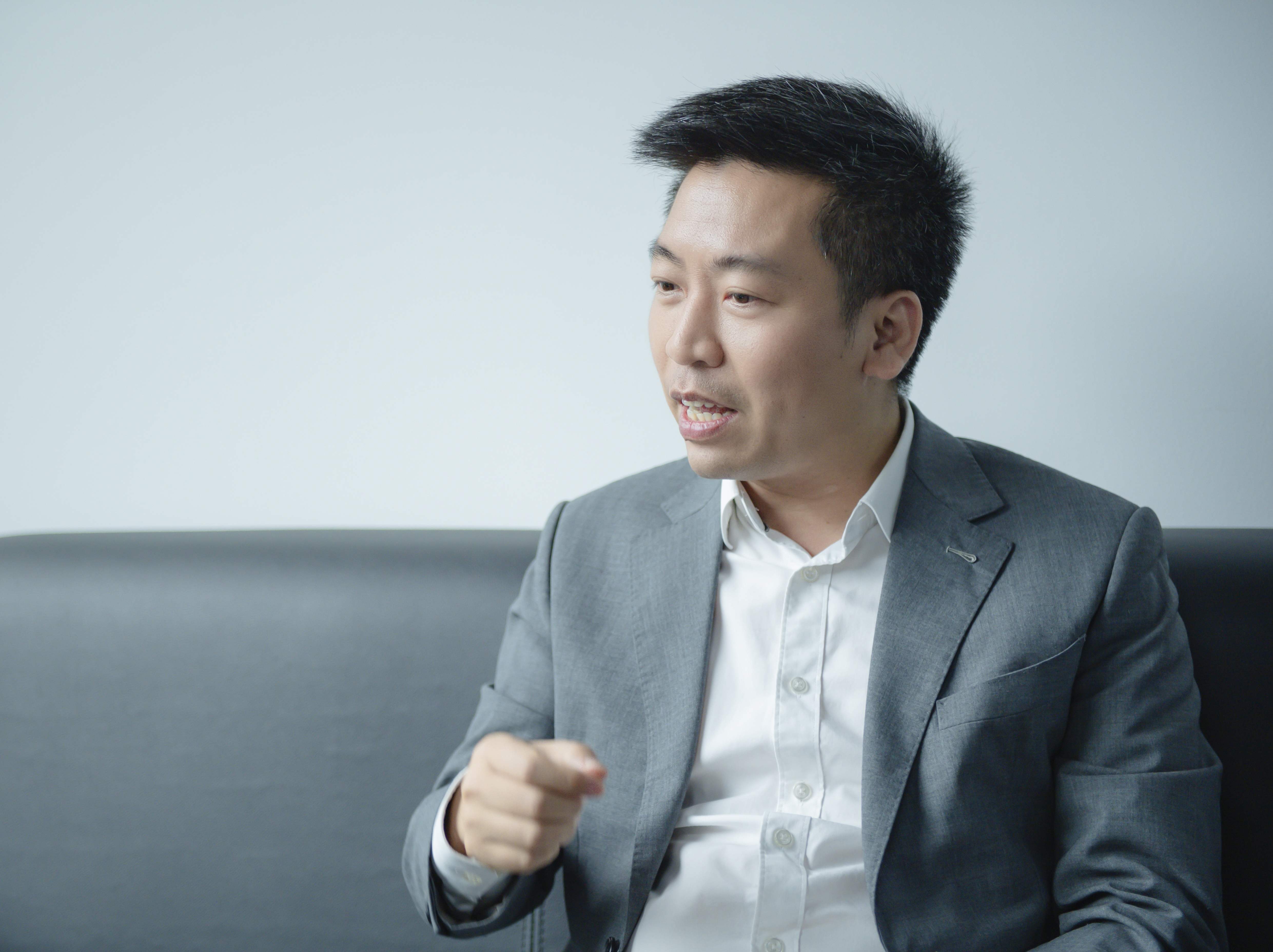
3D/VR/AR technology is new, but full of potential. Although corporations like Meta are leading the way, I believe that Vietnam can absolutely choose its own path and make a difference, especially when applying this technology to in-depth fields such as culture, education and tourism.
Third is semiconductors: This is a strategic and long-term field. Semiconductors are the heart of every hardware device, from phones, electric cars to satellites. If we want to truly implement the spirit of "Make in Vietnam", mastering the chip, that is, mastering from the root, is inevitable.
This is a sector that requires a huge amount of investment capital, but if done properly, it can create a distinct position for Vietnam in the global supply chain.
Finally, 3D/VR/AR is new but full of potential. Although corporations like Meta are ahead, I believe that Vietnam can absolutely choose its own path and make a difference, especially when applying this technology to in-depth fields such as culture, education and tourism.
That is also the direction that YooLife is pursuing - creating a digital copy of the real world, where heritage, memories and community values can be preserved and spread through digital experiences. This field is not only technological, but also closely linked to the mission of preserving Vietnamese cultural identity with the tools of the digital age, in line with the development orientation of the digital economy and digital society that the Government is prioritizing.
Thank you for taking the time to chat!
Source: https://dantri.com.vn/cong-nghe/mang-xa-hoi-yoolife-va-loi-di-thach-thuc-giua-bao-chuyen-doi-so-20250509113726428.htm


![[Photo] General Secretary To Lam and international leaders attend the parade celebrating the 80th anniversary of the victory over fascism in Russia](https://vphoto.vietnam.vn/thumb/1200x675/vietnam/resource/IMAGE/2025/5/9/4ec77ed7629a45c79d6e8aa952f20dd3)
![[Photo] Russian military power on display at parade celebrating 80 years of victory over fascism](https://vphoto.vietnam.vn/thumb/1200x675/vietnam/resource/IMAGE/2025/5/9/ce054c3a71b74b1da3be310973aebcfd)
![[Photo] Magical moment of double five-colored clouds on Ba Den mountain on the day of the Buddha's relic procession](https://vphoto.vietnam.vn/thumb/1200x675/vietnam/resource/IMAGE/2025/5/9/7a710556965c413397f9e38ac9708d2f)
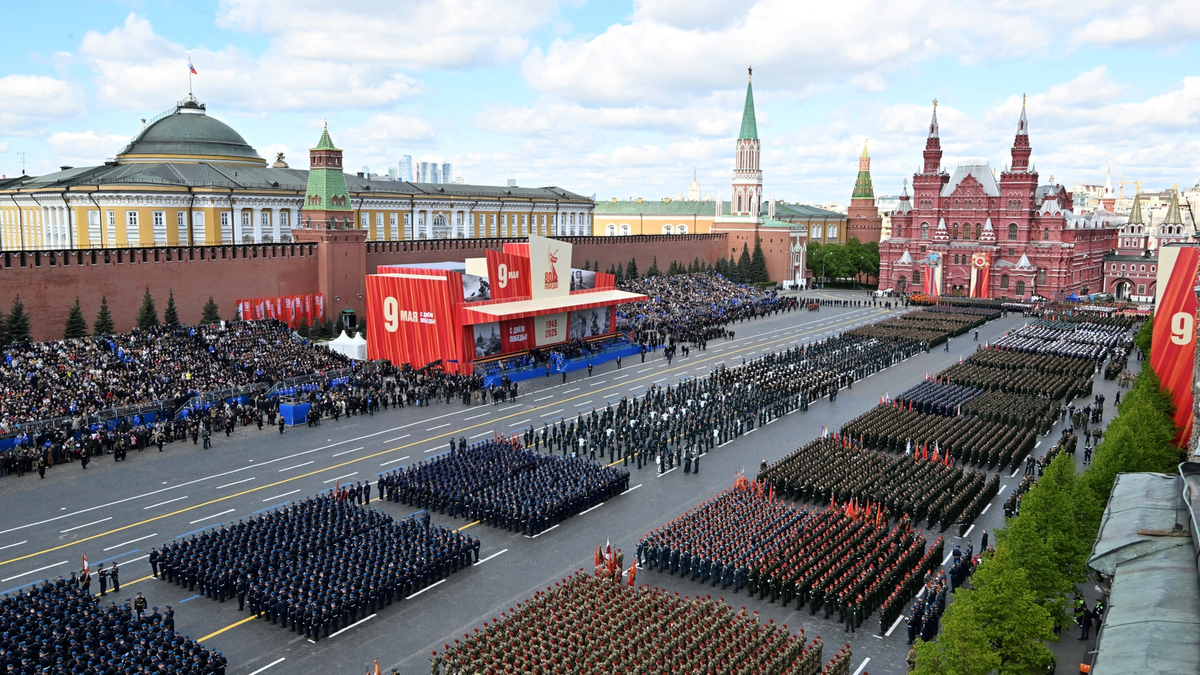

![[Photo] Prime Minister Pham Minh Chinh chairs a special Government meeting on the arrangement of administrative units at all levels.](https://vphoto.vietnam.vn/thumb/1200x675/vietnam/resource/IMAGE/2025/5/9/6a22e6a997424870abfb39817bb9bb6c)
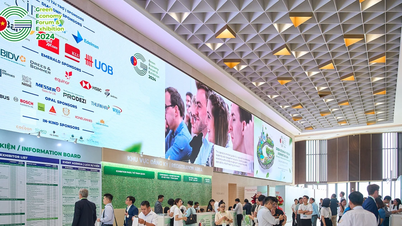

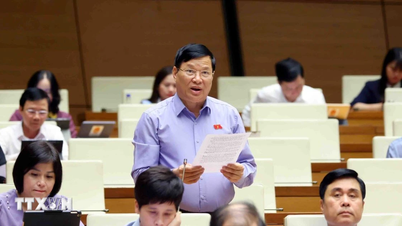
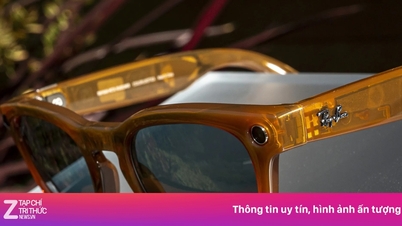
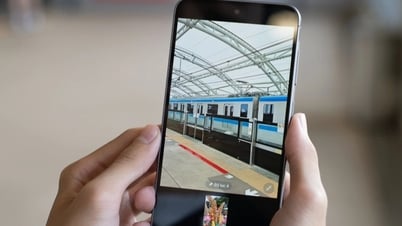









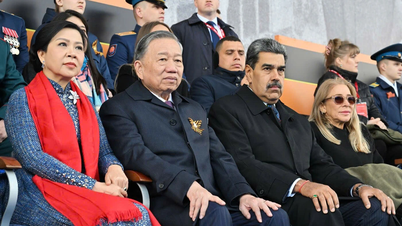















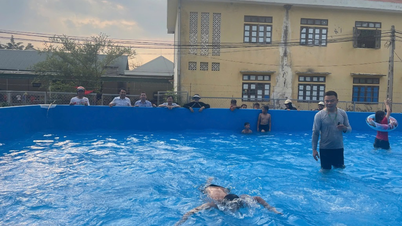



















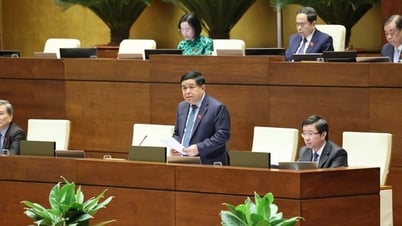

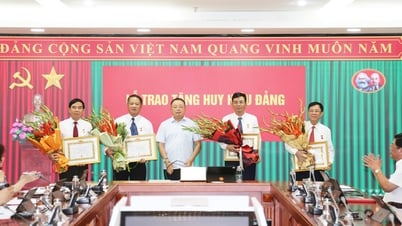

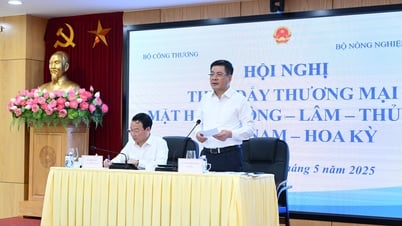


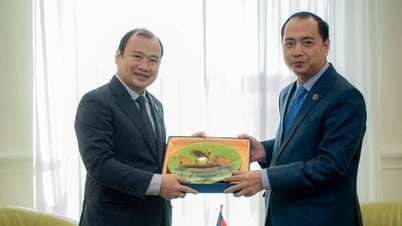




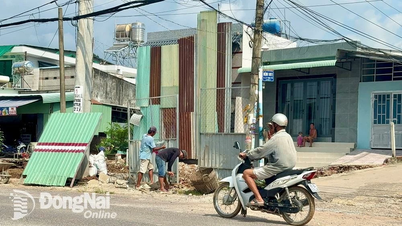

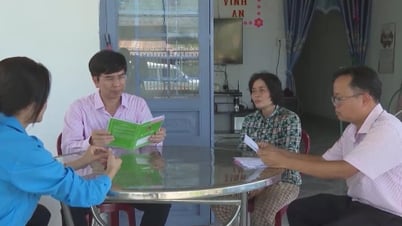











Comment (0)